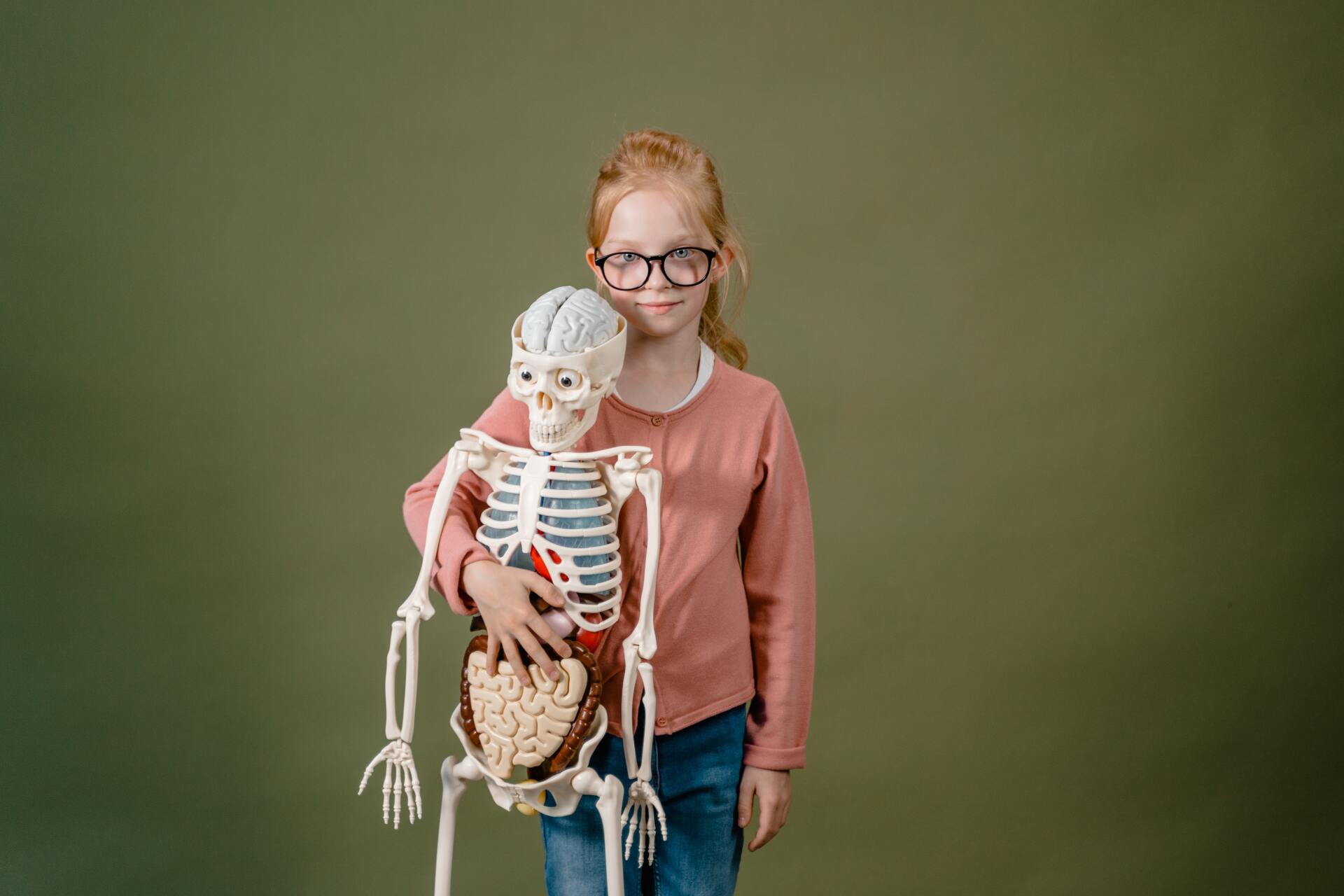Healthy Bones
Everyone wants healthy bones!
We know that bones that are strong do a better job of supporting us and protecting our organs. Having healthy bones also means a lower chance of getting osteoporosis (the silent disease of weak and brittle bones) when we get older. Our bones are useful in another way too -- they store certain minerals such as calcium and phosphorous and release them into the body when we need them for other uses.
Is it too late?
The good news is that it's never too late to care for our bones, and doing so comes with other positive side effects for our general health.
On the flip side, if we don't eat a balanced diet or don't get enough of the right kinds of exercises, our bones can become weak and have a higher chance of breaking. Broken bones can be painful and sometimes require surgery to heal. Unfortunately, people with osteoporosis can also be at risk for tooth loss. When the jawbone becomes less dense, tooth loss can occur.
Weak bones can cause long-lasting health problems.
Growing bones
Our bodies continuously make new bone and break down old bone throughout our lives. When we're young, we make new bone faster than we break down old bone, so our bone mass increases. Most people reach their peak bone mass around age 30. After that, bone remodeling continues, but we lose slightly more bone mass than we gain.
How likely we are to develop osteoporosis depends on how much bone mass we have by the time we reach age 30 and how rapidly we lose it after that. It's kind of like a bone bank -- the more we put in the bank before we're 30 and the more we can keep in there after that, the stronger our bones.
What can I do for healthy bones?
These are the key things we can do:
- Eat a well-balanced diet rich in calcium and vitamin D - a healthy diet includes plenty of fruits and vegetables, whole grains, lean protein, and low-fat dairy products.
- Get plenty of physical activity - the best exercises for healthy bones are strength-building and weight-bearing ones. For example, walking, climbing stairs, lifting weights, dancing, etc. Before starting a resistance training program, it is recommended to seek the advice of a fitness professional, especially for individuals with lower extremity joint conditions that may limit their ability to do weight-bearing exercise.
- Maintain a healthy weight - severely restricting food intake and being underweight weakens bone in both men and women. Weight loss surgery and conditions such as celiac disease can affect the body's ability to absorb calcium, essential to bone health.
- Don't drink too much and don't smoke - loss of bone mineral density is associated with tobacco use and excessive alcohol consumption (more than one drink per day for women and two for men). Smoking in any amount has damaging effect on bone density as it affects how well the bone building cells work.
- Prevent falls - we should take action to prevent falls that can be prevented, for example those caused by loose rugs or poor lighting. Having our vision checked regularly and exercising every day to increase balance and strength can also help to prevent falls.
There are some risk factors for osteoporosis that are not within our control:
- Age - the chances of getting osteoporosis increase as we get older because our bones become thinner and weaker as we age.
- Gender - women have less bone tissue than men and women lose bone faster than men do because of hormonal changes after menopause. However, this does not mean that older men are not at risk for osteoporosis.
- Family history - a parent or sibling with osteoporosis or having a family history of fractures may also increase our own risk.
- Certain medications - long-term steroid therapy, for example, can be damaging to bone.
Consult for concerns
It is always best to enlist our doctor's help if we have questions about our risk factors for osteoporosis. They can recommend a bone density test and advise us on the best course of action.
In the meantime, it's up to us to make daily diet, physical activity, and other lifestyle choices!
References and Additional Information:
- New York government on healthy bones and teeth -
https://www.health.ny.gov/publications/2046/index.htm
- National Institute of Arthritis and Muscculoskeletal and Skin Diseases on bone health information - https://www.bones.nih.gov/health-info/bone/bone-health/bone-health-life-health-information-basics-you-and-your-family
- Cleveland Clinic on how to halt the thinning of your bones as you age - https://health.clevelandclinic.org/7-tips-for-healthy-bones-2/
- Mayo Clinic on tips to keeping bones healthy - https://www.mayoclinic.org/healthy-lifestyle/adult-health/in-depth/bone-health/art-20045060
- Scotland's National Health Service with a great overview - https://www.nhsinform.scot/healthy-living/preventing-falls/keeping-well/looking-after-your-bones
- UK's National Health Service on food for healthy bones - https://www.nhs.uk/live-well/bone-health/food-for-strong-bones/
- American National Osteoporosis Foundation on Guide to a Healthy Bone Diet - https://www.bonehealthandosteoporosis.org/healthy-bones-guide/
- American Academy of Orthopedic Surgeons on bone mass at different ages - https://orthoinfo.aaos.org/en/staying-healthy/healthy-bones-at-every-age/
- National Institute of Arthritis and Multiskeletal and Skin Diseases on taking care of bones from a young age -
https://www.niams.nih.gov/health-topics/kids/healthy-bones





